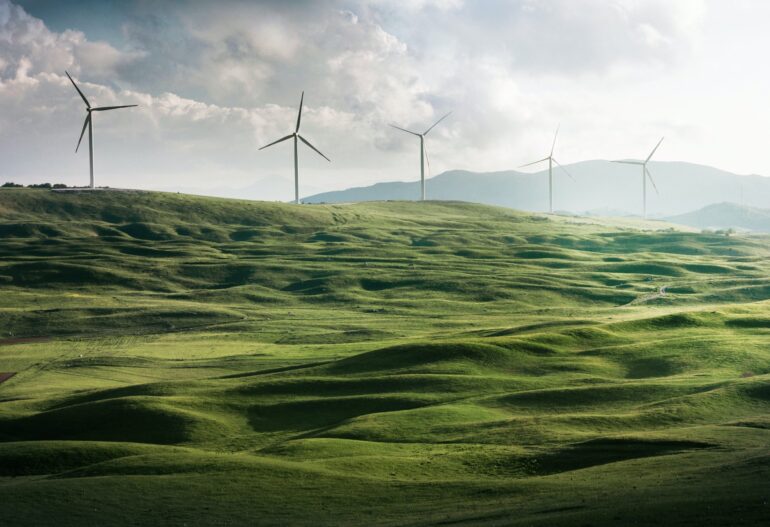Business Transformations happen over 20 Year cycles. It takes 5 years for a new Idea to find traction, with innovators toiling to bring on core R&D, the next 5 years are spent on those ideas being tested in the market and the winners and losers in terms of Ideas, technologies, innovations being decided. The next 5 years, is when rapid adoption takes place a kind of winner takes it all model. The last 5 years is when the winners become complacent and become sitting ducks for the next disruption.
Big Business Transformations happen in blocks of 20 years, the Industrial Revolution, Railways, Radio, Internet, Mobile Communication were these transformations. Cleantech or let’s say Climate Change Tech is the next frontier.
Climate Change Tech will be led across multiple frontiers
i. The transition of Electricity Generation from Fossil Fuels to Clean Sources
ii. Transition of Mobility from Fossil Fuels to Clean Sources
iii. Solving the Problem of Non-Biodegradable Waste (namely Plastic)
iv. Solving the Problem of Sustainability of Natural Resources ( Clean Air and Water)
Why is it Big:
If we look at each of these Frontiers they represent a challenge arising out of huge advancements made by mankind which has led to prosperity and material benefits for people. The opportunity lies in solving the by-products of these advancements namely Air pollution, Global Warming, Plastic Waste, Lack of Clean Water.
Previous Big Tech Innovations were brought about by using technology to help mankind do things with non-Linear Efficiency etc. Train Travel, Radio Communication, Air Travel. This Big Tech Innovation in Climate Change however will be aimed at Material Innovation to improve the quality of living. It ends up making a material difference to Humankind in league with all previous innovation cycles.
What the are the Challenges?
i. Building technology which enables transition from Fossil Fuel to Clean Energy namely Solar PV, Wind Energy and Waste to Energy
ii. Moving Mobility to Clean Fuels through innovations around Electric Vehicles, Battery Storage and Charging Infrastructure
iii. Moving Packaging to Bio-Degradable material through Material innovation and improving the eco-system of Waste Recycling and the circular economy.
iv. Improving the capacity of Waste Water Management and Clean Air through Policy and Governance Initiatives. The investments through Urban Local Bodies and bringing Global Best Practices is crucial
What will be needed?
Capital – The above-mentioned transitions will require dollops of capital both equity and debt in multiple forms. Seed, Angel, Venture, Private Equity, Mezzanine, Hedge every form of capital will need to come in different structures for different projects. Once the capital comes in, we will need skilled finance resources for building Detailed Project Reports, Investment Bankers who will work out the deals, Legal Experts for contracts all of which are needed to ensure these projects take off.
Innovation – Breakthrough technologies will come from small startups or Incubators coming from Academic Institutes. The eco-system to handhold these innovators to the is important
Startups – Commercialization of the above-mentioned innovations needs nimble manoeuvring which is best done by startups. Rapid technology and process innovations works best when small organisations are able to respond to fast changing market requirements
Large Corporates and Consultants – the Core Technology or Process innovations require Large companies to buy, licence and use the technology. The large corporates could also provide capital and valuable exits for the startups. The Consultants come with global best practices and help technology deployment through critical project management.
Emerging Markets vs Developed Markets – The two different sides of the development world have a true North South Divide. The Developed Market has the capital and is seeing early signs of climate change, the developing world is still trying to grapple with basic Human Development Index goals. The two worlds have the same Climate Change Goals but may end up taking different paths to the same. In the developed world we need to retrofit existing Infra with Clean Alternatives, while the developing will need new Infra which could be built on Clean Technology.
This was my humble attempt to start a discussion on what is the future of Cleantech and its myriad goals in the context of a world which really needs to come together to solve the problem of Climate Change.
Arjun Sinha Roy
CEO and Co-Founder



![003 - IR Home CTA CHARGING INFRASTRUCTURE [By Markus Spiske on Unsplash]](https://irasus.com/wp-content/uploads/2021/07/003-IR-Home-CTA-90x67.jpg)


